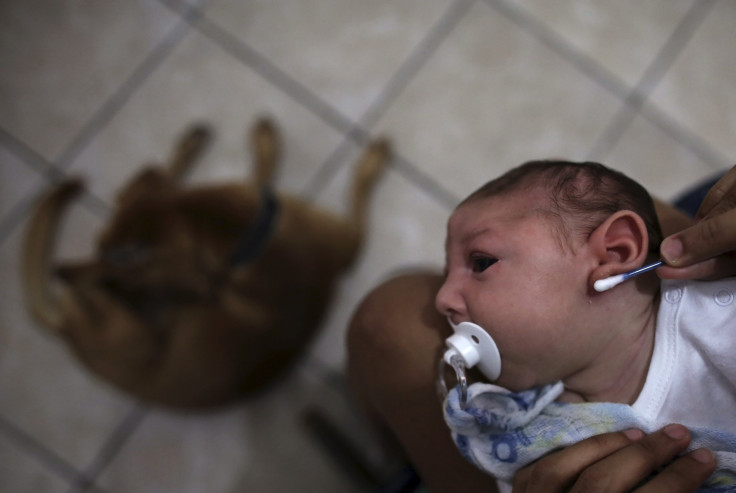Does Zika Cause Birth Defects? CDC Finds ‘Strongest Evidence To Date’ Of Link Between Virus And Microcephaly

Scientists have found the strongest evidence to date linking the Zika virus to the birth defect microcephaly, Dr. Thomas Frieden, director of the U.S. Centers for Disease Control and Prevention, said Wednesday in testimony before a congressional hearing on the virus.
The data, released by the CDC Wednesday, was based on findings from four cases in Brazil. Two involved fetuses that miscarried at 10 and 11 weeks of pregnancy, and the two others were babies that were born with microcephaly and died within 24 hours. In those babies' brain tissue, a CDC laboratory working with Brazilian scientists identified the DNA of the Zika virus, Frieden said.
“This is the strongest evidence to date that Zika is the cause of microcephaly,” Frieden said, but he cautioned that the findings did not prove that the virus causes the birth defect. "It's still not definitive," he added.
The CDC's findings were released two days after the White House asked Congress for $1.8 billion to combat the Zika virus. An outbreak of the little-understood mosquito-borne virus has already struck about two dozen countries and territories, from the Americas to the Pacific Islands, and travel-related cases are on the rise in the United States.
The alarm over the Zika virus began after doctors in Brazil reported in October a jump in cases of microcephaly, a birth defect where babies are born with abnormally small heads, from about 150 to 4,000 in a year. In a minority of cases, these children develop normally, but in others they have lifelong physical or mental disabilities — or both.
The World Health Organization declared Feb. 1 that Zika constituted a global health emergency, even as it underscored the need for more research before scientists and public health officials can fully explain how and if a woman who contracts the virus during pregnancy will give birth to a microcephalic child.
During Wednesday's hearing, Frieden ticked off an exhaustive list of other aspects of the Zika virus that scientists and public health officials still don't understand: whether an infected man can harbor it in his semen, how the Aedes mosquitoes that carry the virus can be controlled, and what the link, if any, is between Zika and Guillain-Barre syndrome, a neurological condition that can cause temporary paralysis and that also occurs after other infections, not just Zika.
"We will discover more and more each day," Frieden said.
© Copyright IBTimes 2024. All rights reserved.




















